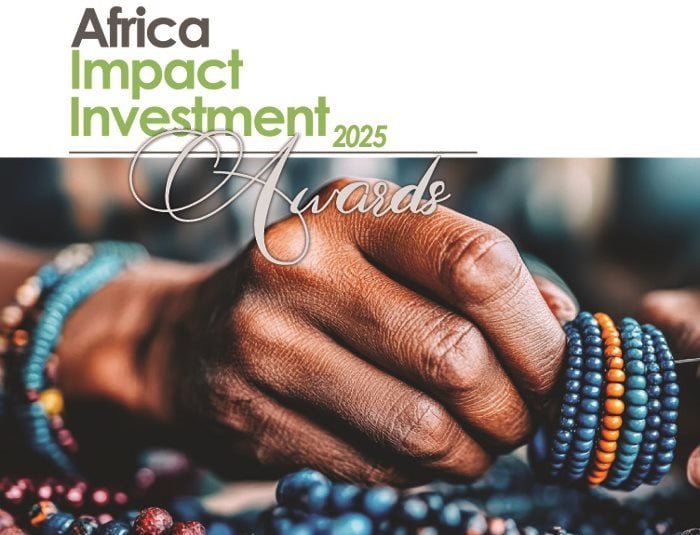
Top stories






More news


Marketing & Media
Prisa's Bradley Howland: The importance of professional associations








This year’s winners demonstrate how bold ideas, blended capital, and purpose-driven leadership are transforming development finance across Africa, from unlocking climate financing through AI to expanding access to capital for rural women entrepreneurs and scaling clean energy solutions for low-income communities.
The awards recognised outstanding individuals and organisations whose work exemplifies the principles of intentional, measurable, and scalable impact investing. This year’s winners stood out among a highly competitive field of 64 nominations evaluated by a panel of 11 judges representing leading institutions from across the continent’s impact ecosystem.
“The world cannot be changed without investment,” notes Dr Stuart Theobald, executive chairperson of Krutham. “These awards shine a light on the pioneers demonstrating that investing in people, planet and purpose can also unlock new paths to financial return. Their work proves that Africa can lead the way in redefining how capital delivers inclusive prosperity.”
As countries across the continent face budget constraints and shrinking aid flows, impact investing is emerging as a powerful and necessary financing tool. In 2022, Africa attracted an estimated $2.51bn in impact investments, accounting for 12% of global flows. Yet this represents just a fraction of the continent’s needs: $1.3trn per year is required to meet the Sustainable Development Goals, according to the United Nations Development Programme.
“This year’s winners are building a future where capital serves people, not the other way around,” says judge Simunza Muyangana from the National Advisory Board for Impact Investment (NABII) Zambia, from the Impact Investing Institute. “We saw vision, rigour, and courage. These leaders are not just funding change—they’re building the future of finance itself.”
Impact investing is not only growing in volume but also diversifying across sectors such as clean energy, agriculture, education, and healthcare, where returns are measured not just in profits, but in lives improved, jobs created, and emissions averted. Another major trend is the rise in cross-border collaboration, pointing to a stronger, more connected investment environment.
“The real breakthrough lies in intentional, well-structured investments tailored to Africa’s realities—ones that prioritise measurable, lasting outcomes,” adds Theobald.
“Impact investing is not just about bridging financing gaps,” concludes Theobald. “It’s about reimagining how we define success, how we build economies, and who benefits from growth.”